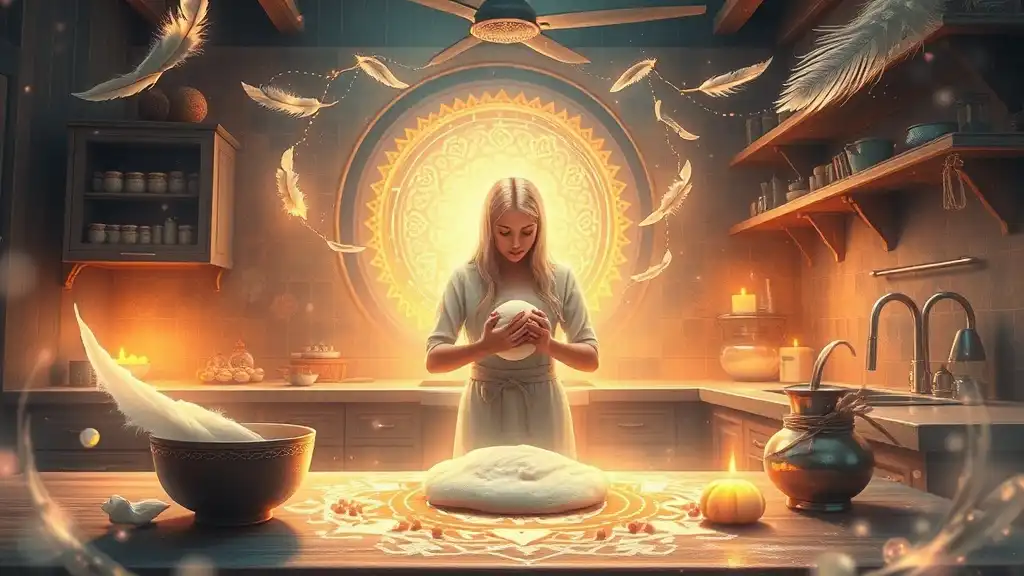Dreams hold a profound significance in our lives, acting as a bridge between our conscious and unconscious mind. They can reveal hidden thoughts, express emotions, and connect us to aspects of ourselves we may not always acknowledge. Among the myriad themes that can appear in dreams, wounds frequently emerge as potent symbols laden with meaning. Unpacking the spiritual significance of wounds in dreams can offer insights into our emotional state, past traumas, and pathways to healing.
Understanding Dreams
What Are Dreams?
Dreams are a series of thoughts, images, and sensations occurring in a person's mind during sleep. They often reflect our daily experiences, emotions, and subconscious thoughts. Understanding dreams requires recognizing that they manifest in various states, primarily during REM (Rapid Eye Movement) sleep. In this phase, our brain is actively processing information, leading to vivid and often surreal dream experiences.
The Role of Symbols in Dreams
In the realm of dreams, symbols serve as essential communication tools for the subconscious. A symbol can range from concrete images, such as a wound, to more abstract concepts that stir emotions or memories. The symbolism behind wounds can have both physical and emotional interpretations, revealing underlying pain, trauma, or areas in need of healing. Recognizing these symbols allows us to engage more deeply with our dreams, translating them into actionable insights in our waking lives.

The Symbolism of Wounds in Dreams
Primary Symbolism of Wounds
Wounds in dreams often symbolize pain, trauma, or injury, whether these are physical or emotional. Physically, a wound signifies vulnerability and the need for protection. Emotionally, it points to experiences that may have left deep scars on our psyche. These dreams may cry out for acknowledgment of unresolved pain or serve as a reminder of aspects that require healing.
Types of Wounds
Physical Wounds
When we dream about physical wounds—such as cuts, bruises, or injuries—it can indicate real-life situations where we feel hurt or threatened. These dreams may arise during times of stress or when we’re processing past experiences. For example, if you've recently undergone an injury or feel attacked in a specific aspect of your life, your subconscious might express this through dreams of wounds. In contemplating these dreams, it's imperative to examine any physical vulnerabilities or stresses that may be manifesting.
Emotional Wounds
Dreams that involve emotional wounds highlight inner turmoil and unresolved feelings, such as heartbreak or betrayal. These dreams often serve as invitations to confront the pain we may have pushed deep into our consciousness. For example, a recurring dream about an emotional wound might indicate that it's time to address past hurt, forgive oneself or others, and embark on the journey of healing. The acknowledgment of such wounds as critical components of our emotional landscape can facilitate spiritual growth and transformation.

Spiritual Perspectives on Wounded Dreams
Messages from the Universe
Many spiritual beliefs suggest that dreams serve as messages from a higher power or the universe. When we dream of wounds, this could be interpreted as the universe guiding us to recognize and heal parts of ourselves that have been neglected. Such dreams often carry urgent messages, urging us to tackle unresolved issues head-on. It's essential to approach these dreams with reverence and openness, allowing the insights they provide to illuminate our path.
Healing and Transformation
The Healing Process
Dreaming of wounds may signify an urgent call for healing within ourselves. The appearance of a wound in a dream can signal the need to address our mental, emotional, or spiritual well-being. This can involve tangible steps, such as engaging in activities that promote self-care, practicing mindfulness, or seeking help from a therapist.
Identifying the root cause of recurring dreams about wounds can often lead to profound personal transformations. By examining the context and feeling associated with the dream, we can work towards fostering a healing environment within ourselves.
Transformation Through Pain
While pain is often viewed negatively, it can also serve as a powerful catalyst for transformation. By acknowledging and accepting our emotional wounds, we tap into the transformative power of our experiences. Confronting these issues head-on can lead to personal growth and spiritual evolution, helping us emerge stronger and more self-aware.

Addressing the Wounds
Self-Reflection and Awareness
Engaging in self-reflection after experiencing dreams with wounds is critical for understanding their significance. As you ponder these dreams, consider questions such as:
- What feelings arose during the dream?
- Are there current stressors or past events that may relate to the wound?
- How do I perceive my vulnerability in waking life?
Keeping a dream journal can be an effective tool to illuminate patterns or recurring themes related to your dreams. By documenting your dreams and your reflections on them, you can gain deeper insights into your emotional landscape.
Seeking Help and Support
While self-reflection is valuable, sometimes we need external support to address our wounds. Consulting with spiritual guides or therapists can provide additional perspectives and healing practices tailored to our individual journeys. Engaging with a community or support group can also enhance your healing process, allowing you to share and learn from others' experiences.

Conclusion
In exploring the spiritual significance of wounds in dreams, we uncover a rich tapestry of emotions, lessons, and pathways toward healing. These dreams serve as powerful reminders to acknowledge our pain, embrace our vulnerabilities, and recognize the importance of healing in our spiritual journey. By engaging with these dreams thoughtfully and proactively, we can unlock profound insights that facilitate our growth and transformation in both our dreams and waking life. Remember, every wound has the potential to lead to healing and deeper connection with ourselves and the universe around us.



















